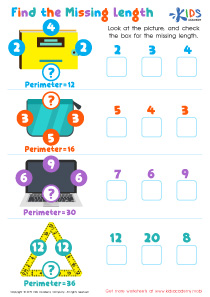Easy Subtraction Worksheets for Ages 4-7
39 filtered results
-
From - To
Discover our "Easy Subtraction Worksheets for Ages 4-7," designed to empower young learners with foundational math skills! These engaging and printable worksheets are perfect for early grade students who are just beginning to explore subtraction concepts. Each worksheet features colorful illustrations and age-appropriate problems that make learning fun and accessible. Teachers and parents can easily integrate these resources into classroom activities or homework assignments to reinforce understanding. Whether practicing with single-digit numbers or simple word problems, children will build confidence and develop essential math skills. Explore our collection today and support your child's educational journey with enjoyable subtraction practice!
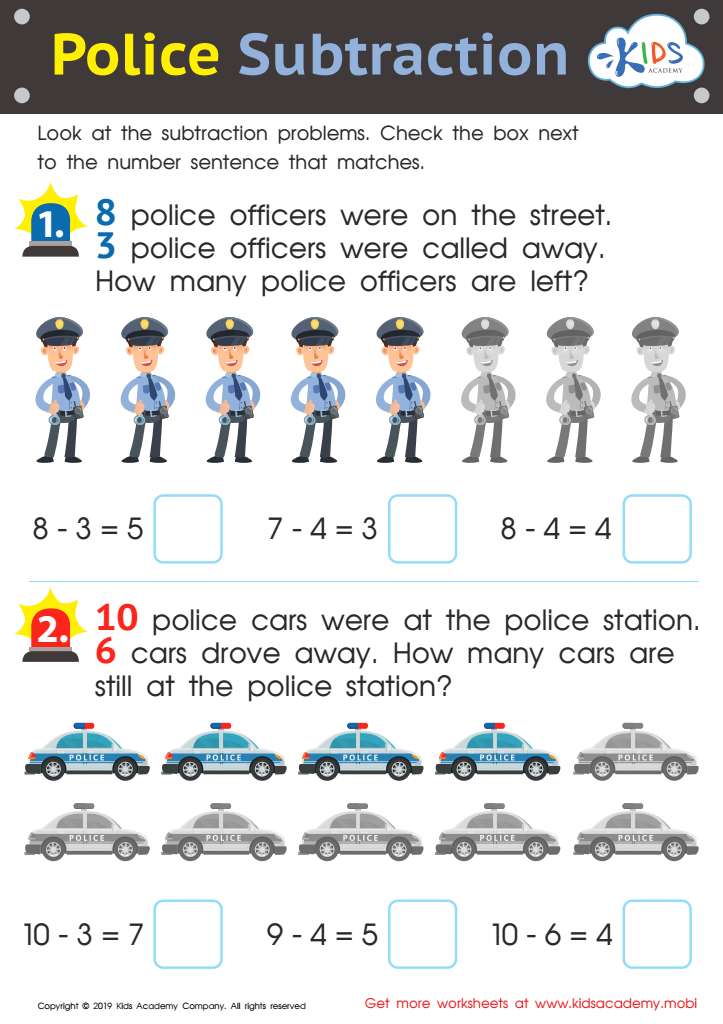

Police Subtraction Worksheet
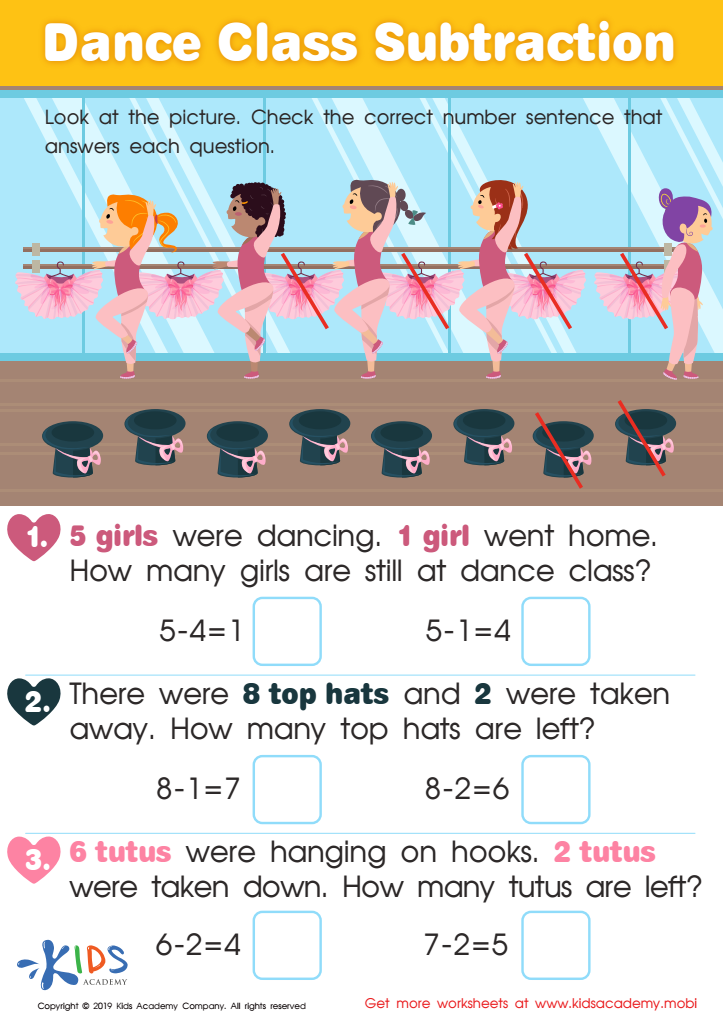

Dance Class Subtraction Worksheet
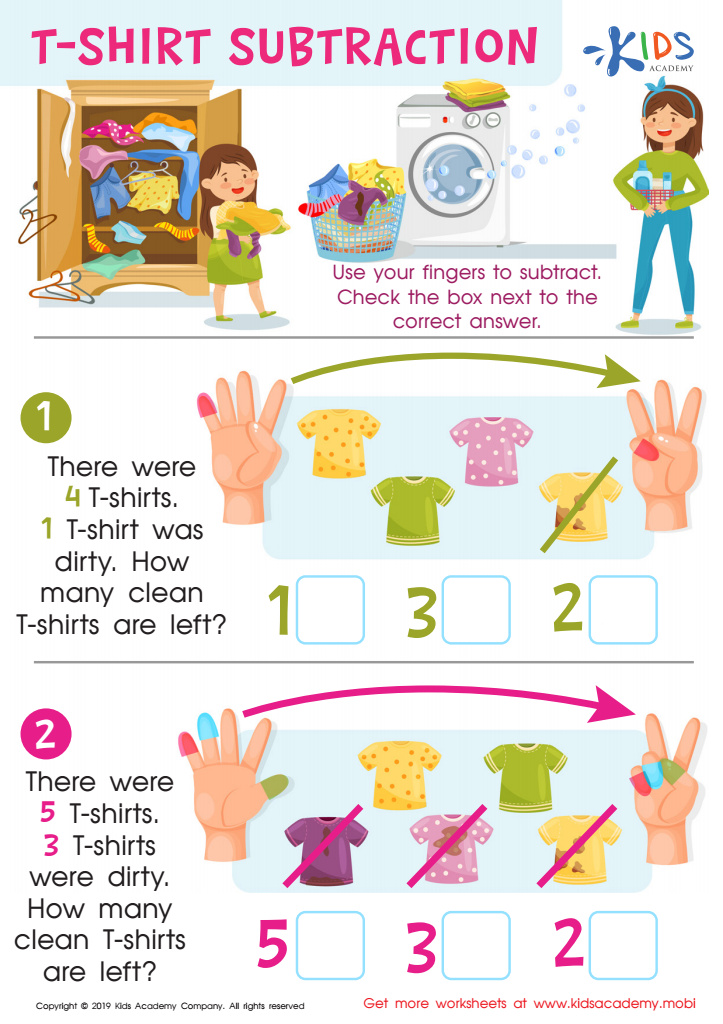

T-shirt Subtraction Worksheet
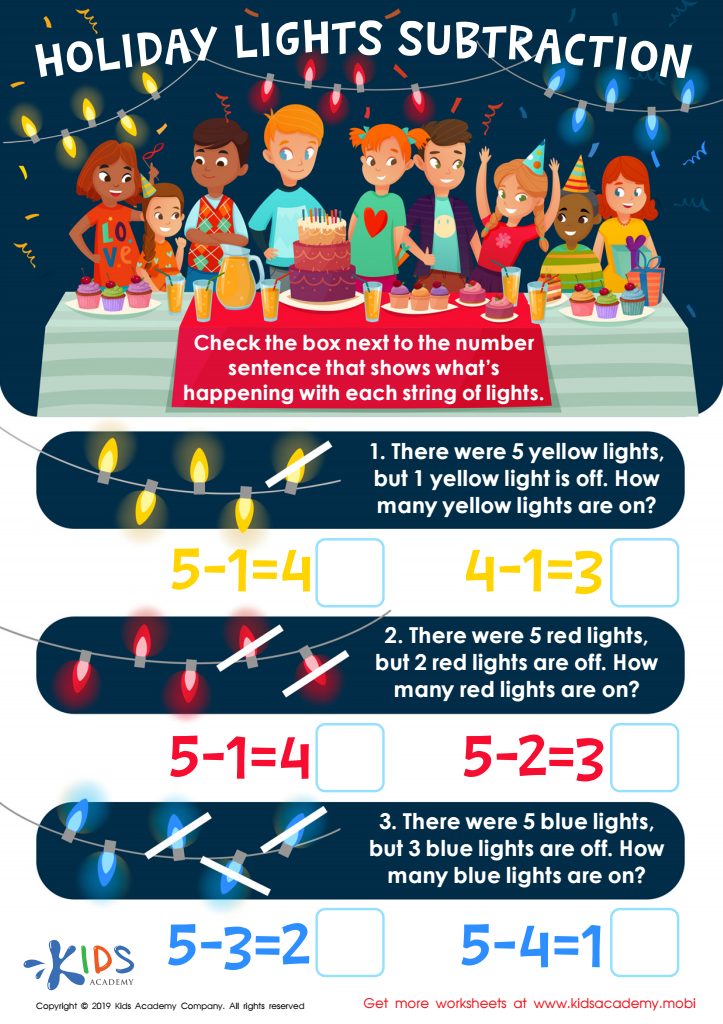

Holiday Lights Subtraction Worksheet
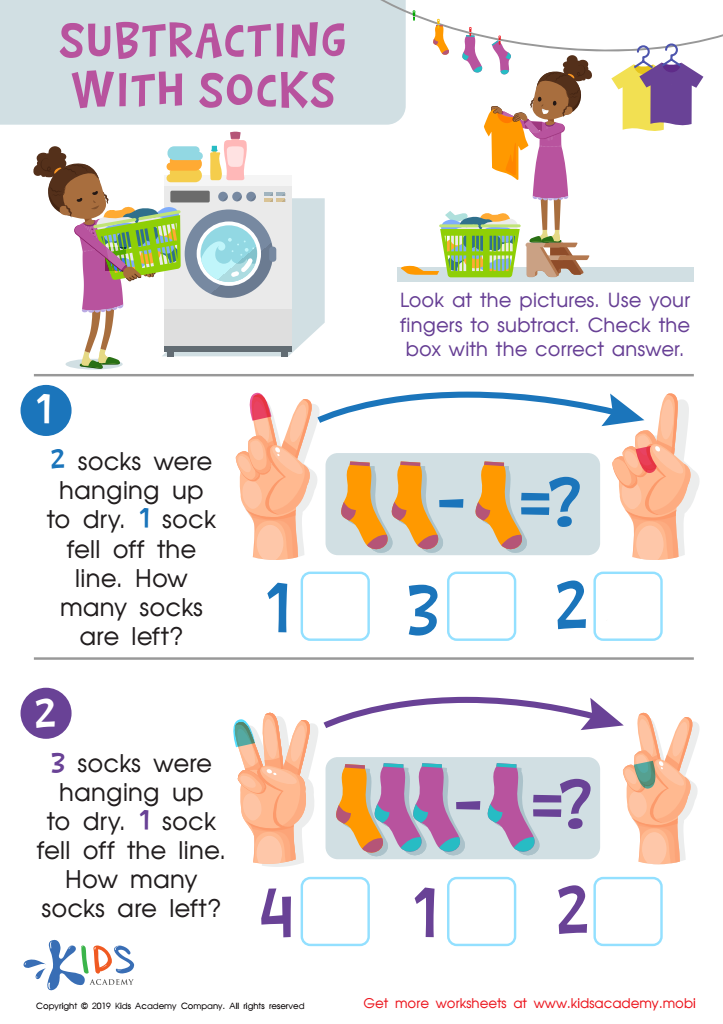

Subtracting Socks Worksheet
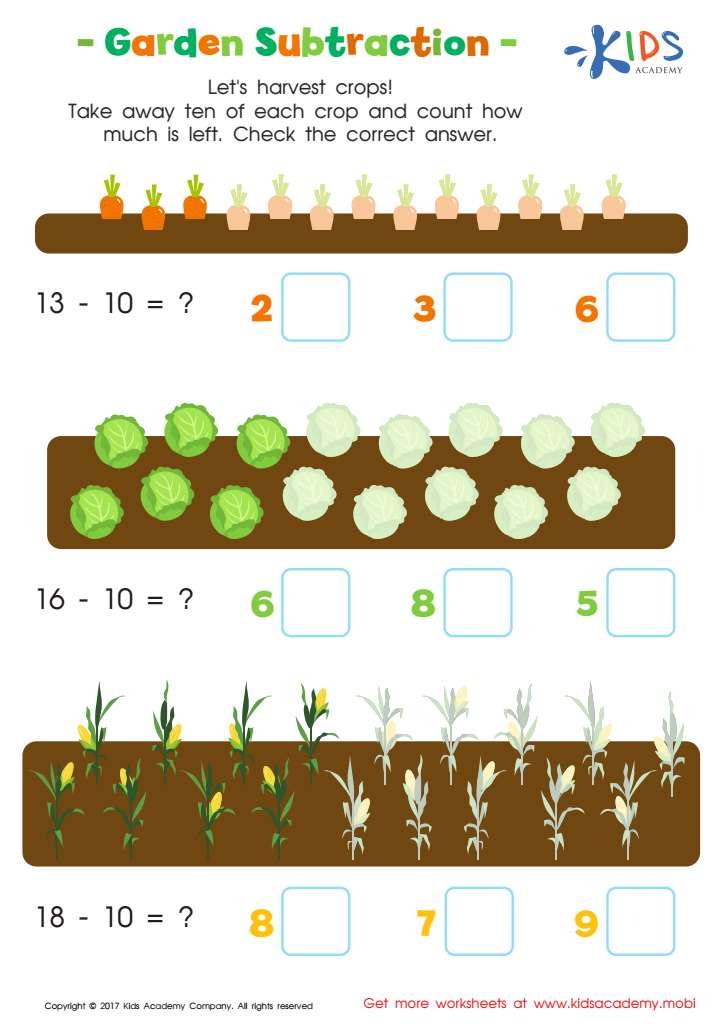

Garden Subtraction Worksheet
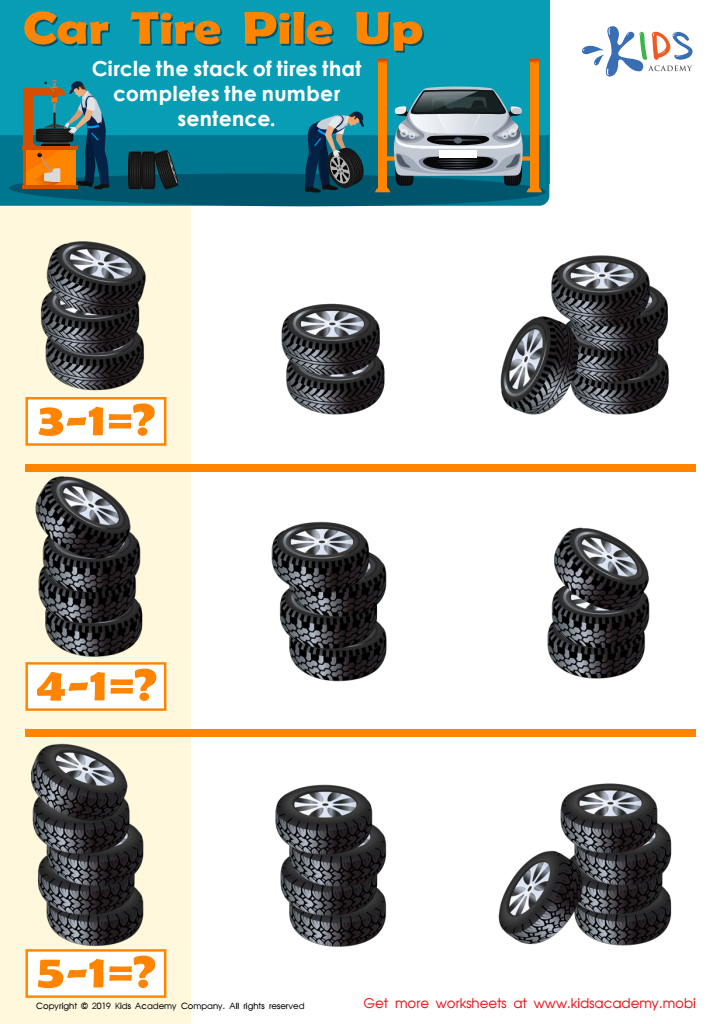

Car Tire Pile Up Worksheet
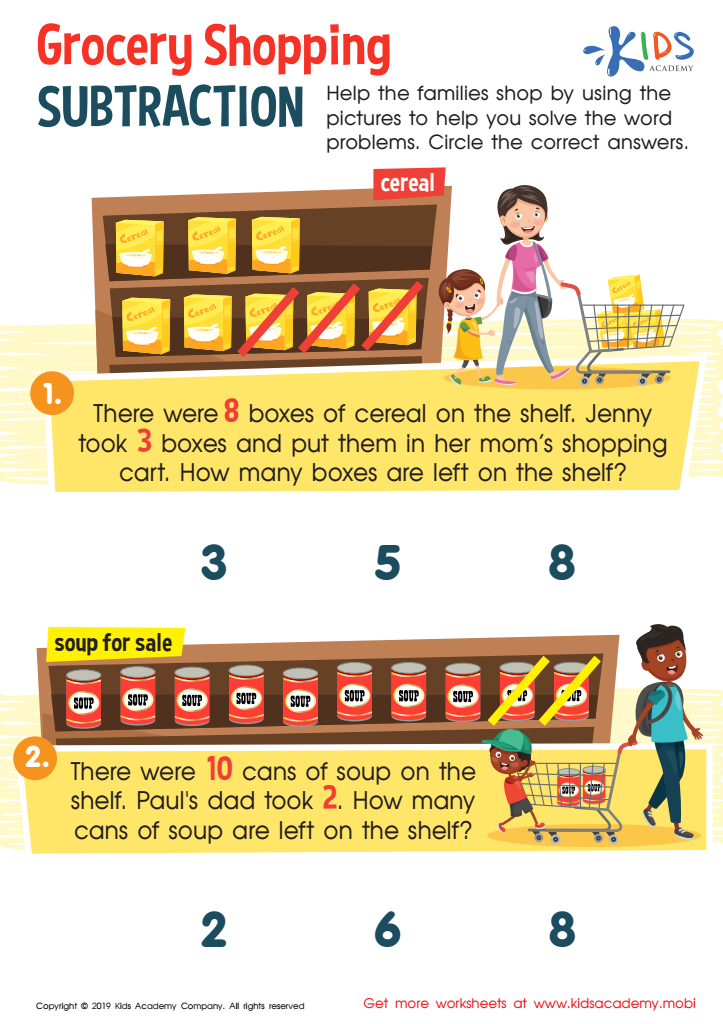

Grocery Shopping Subtraction Worksheet
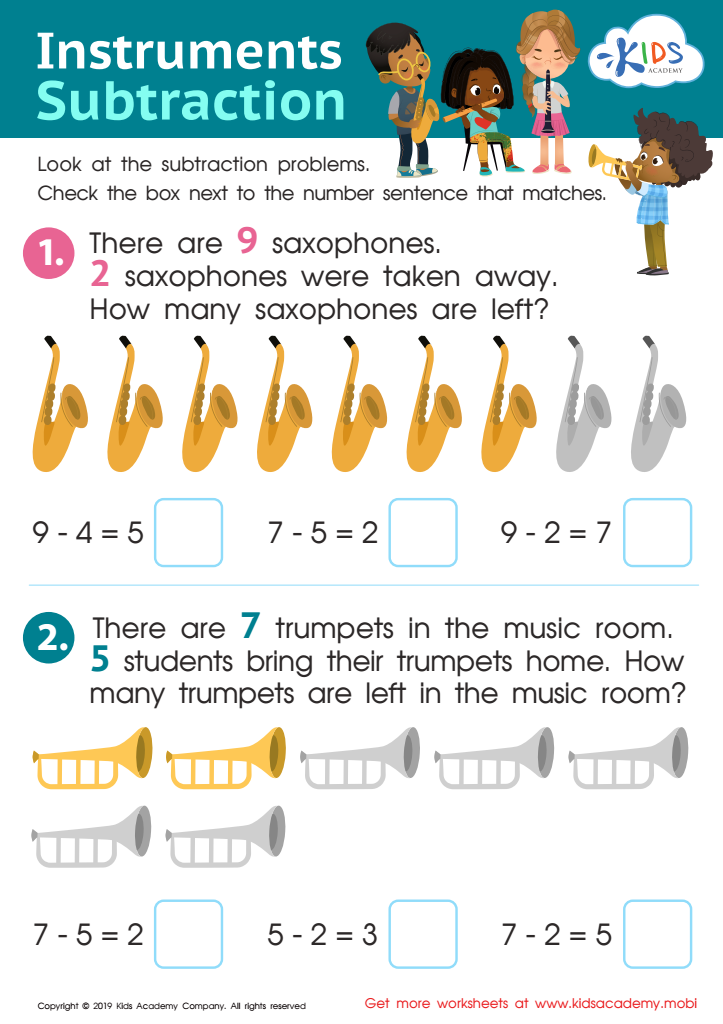

Instrument Subtraction Worksheet
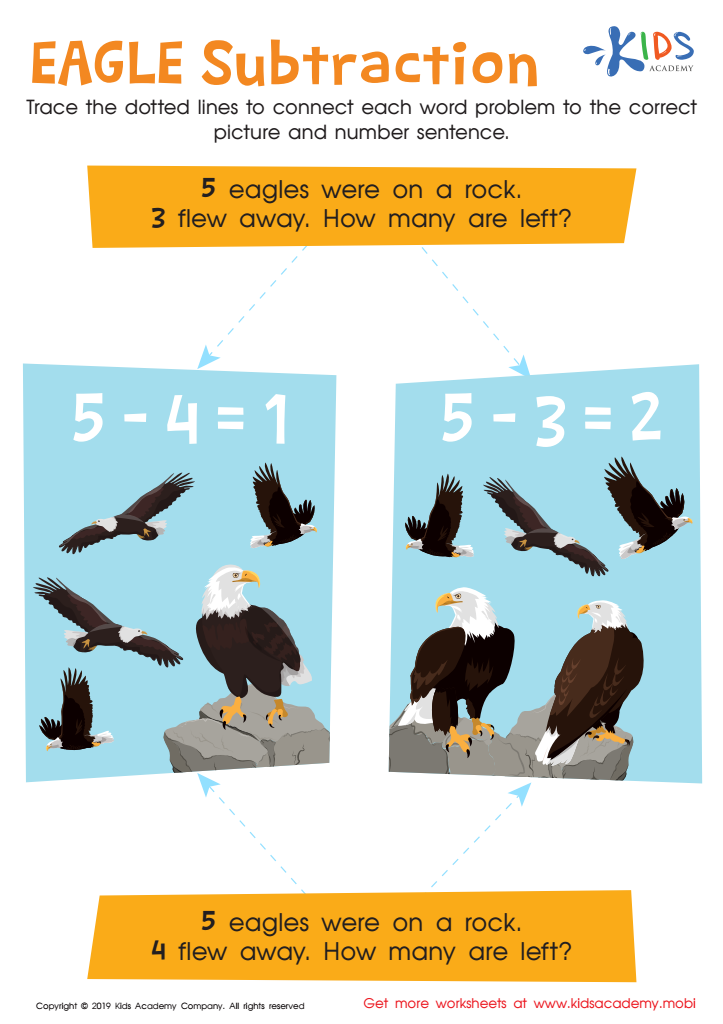

Eagle Subtraction Worksheet
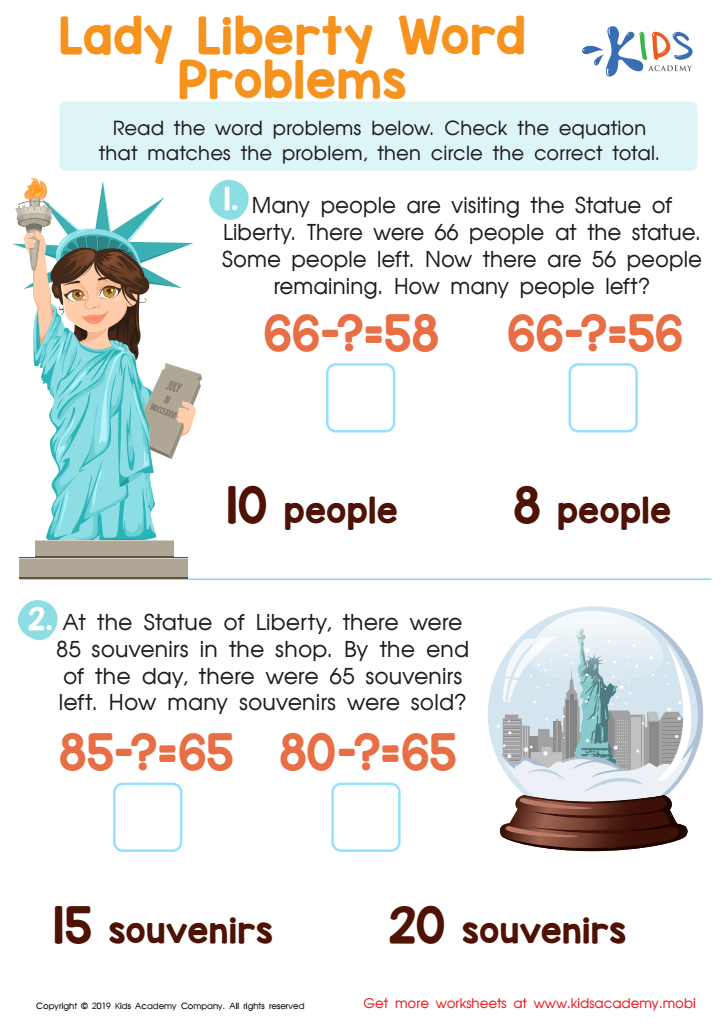

Lady Liberty Worksheet
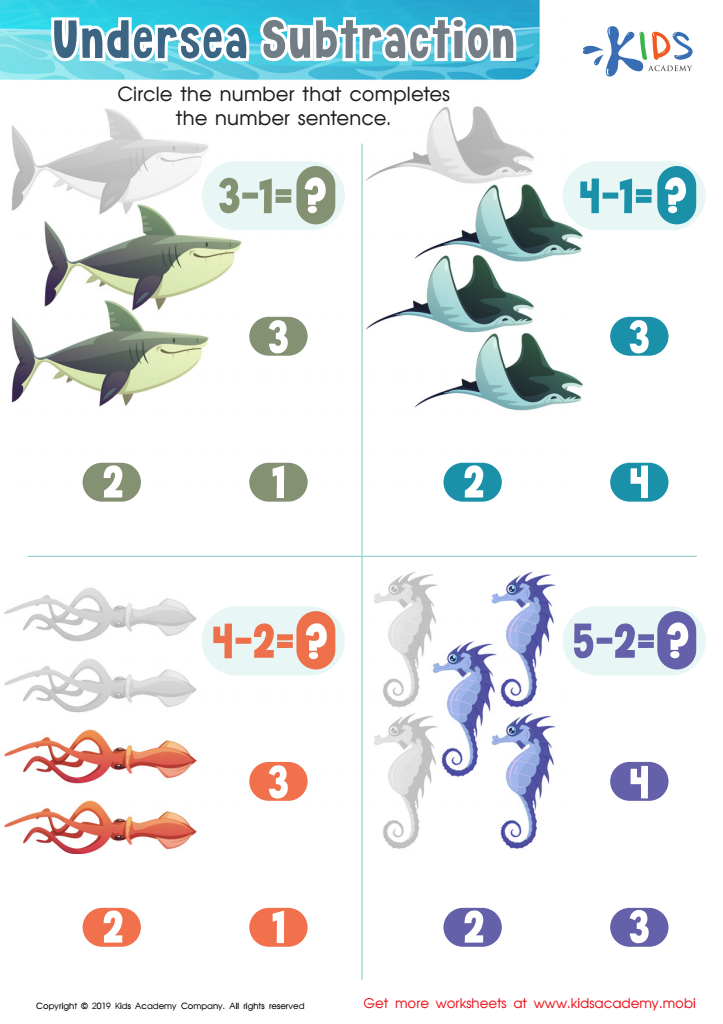

Undersea Subtraction Worksheet
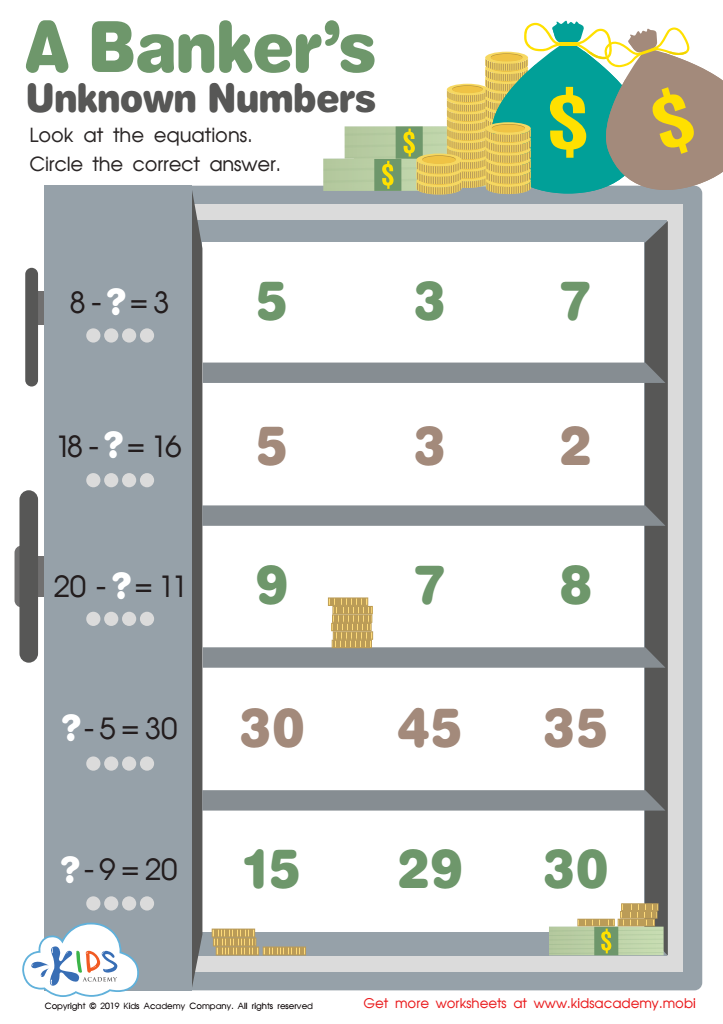

A Banker's Unknown Numbers Worksheet
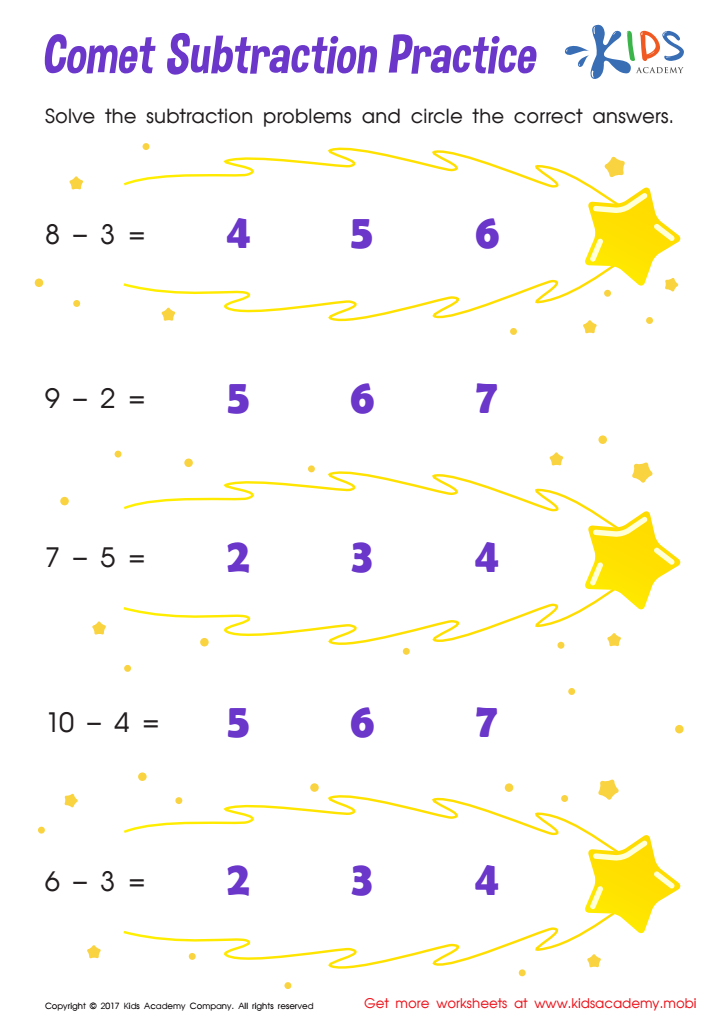

Comet Subtraction Practice Substraction Worksheet
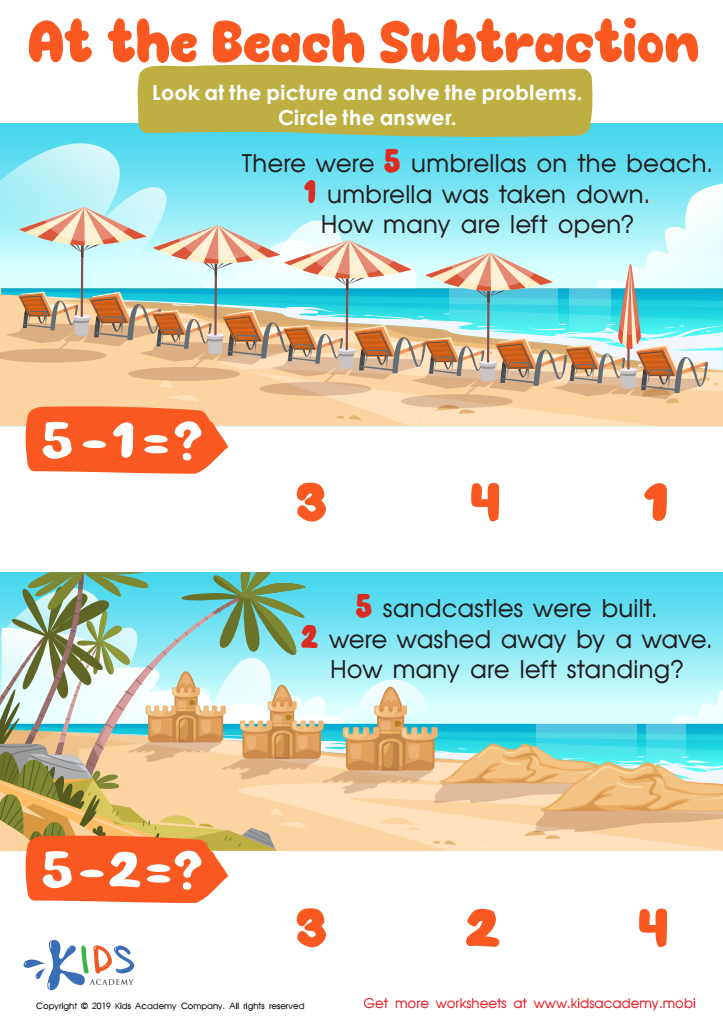

At the Beach Subtraction Worksheet
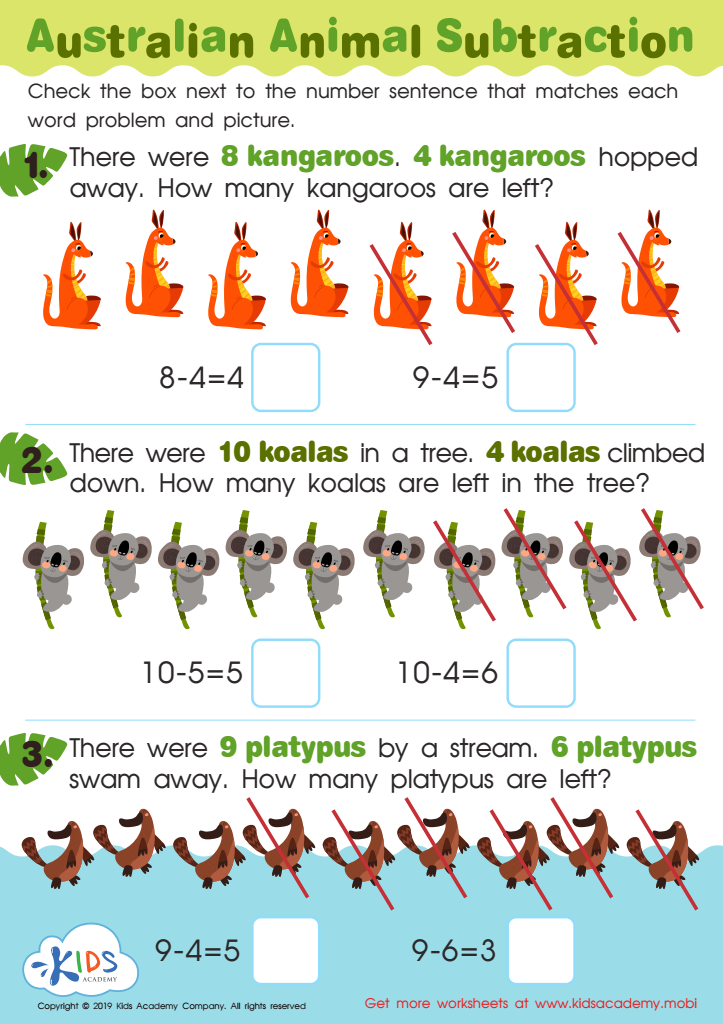

Australian Animal Subtraction Worksheet
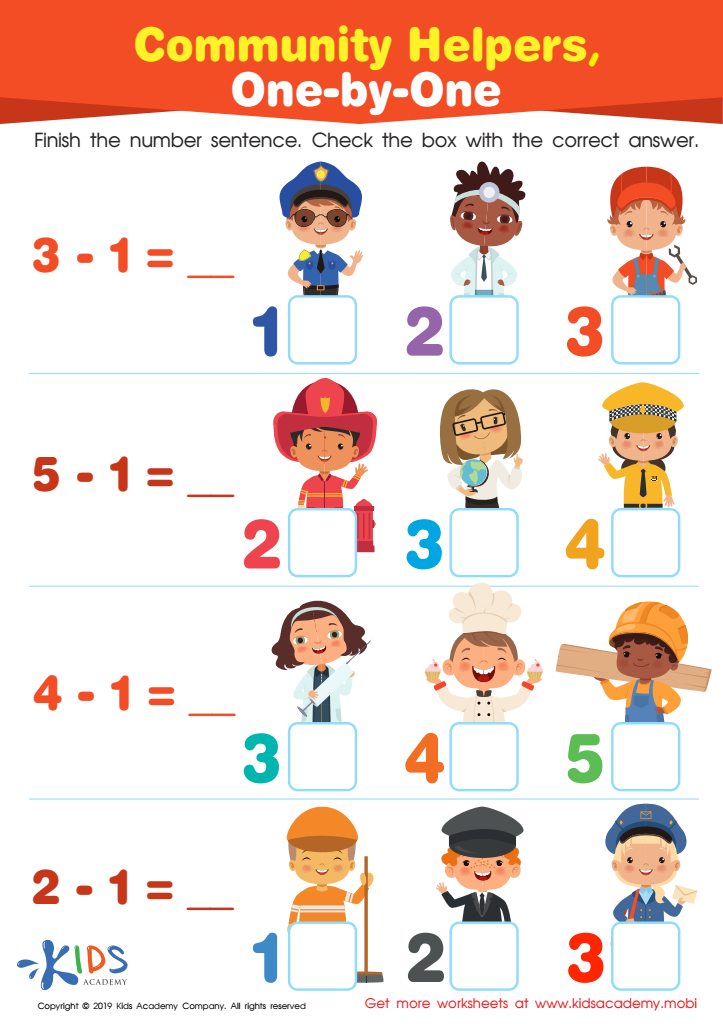

Community Helpers, One-by-One Worksheet
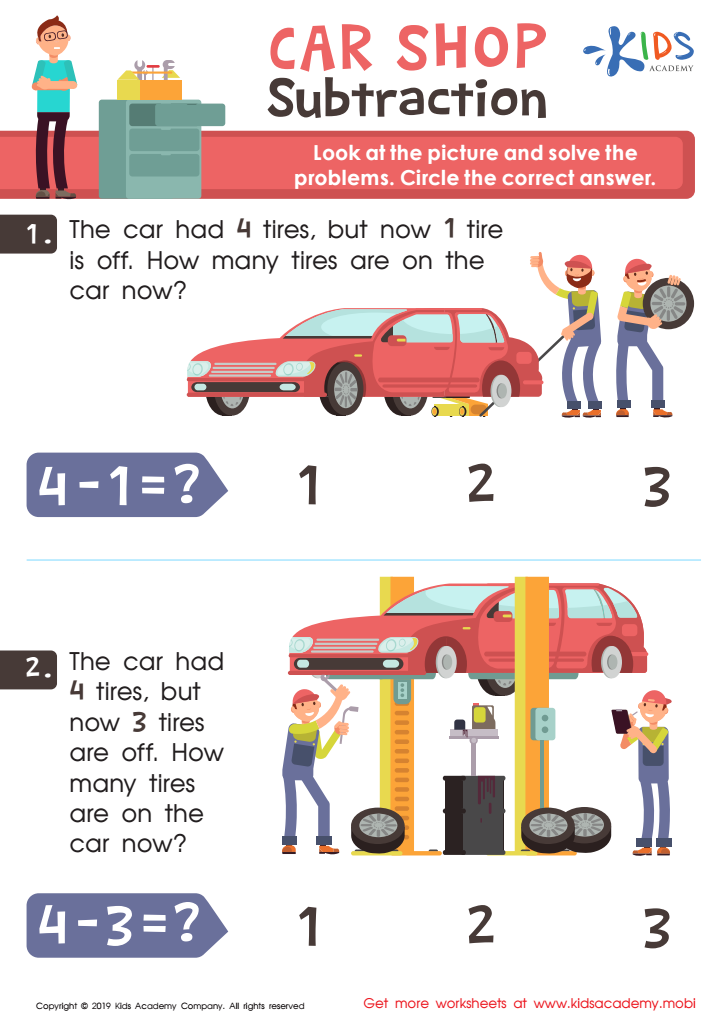

Car Shop Subtraction Worksheet
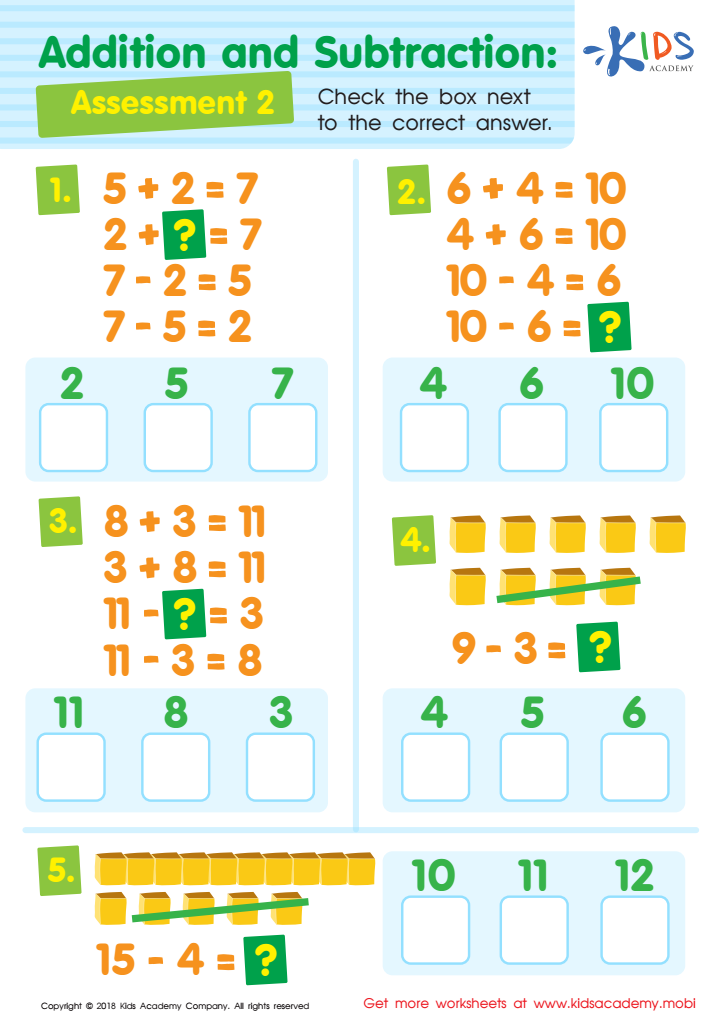

Addition and Subtraction Assessment 2 Worksheet
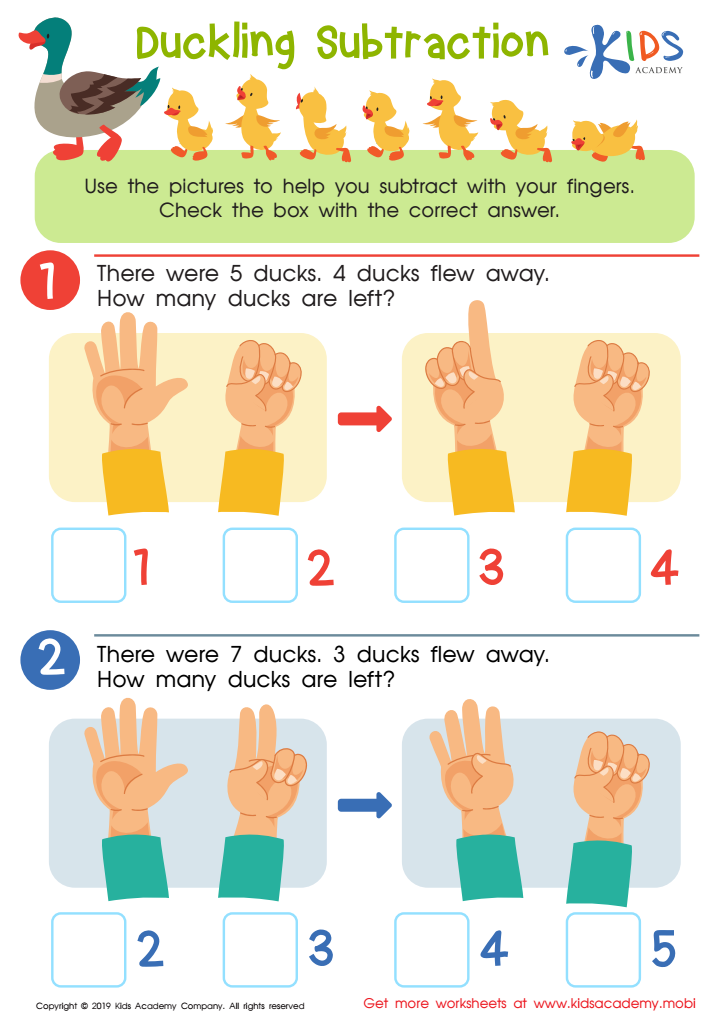

Duckling Subtraction Worksheet
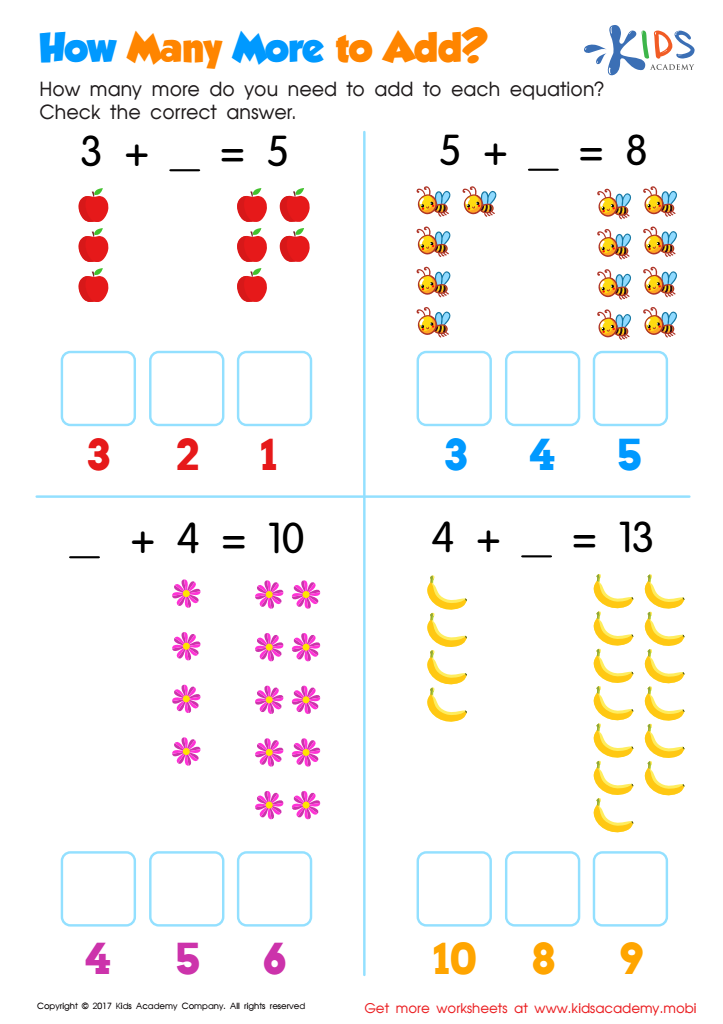

How Many More to Add Worksheet
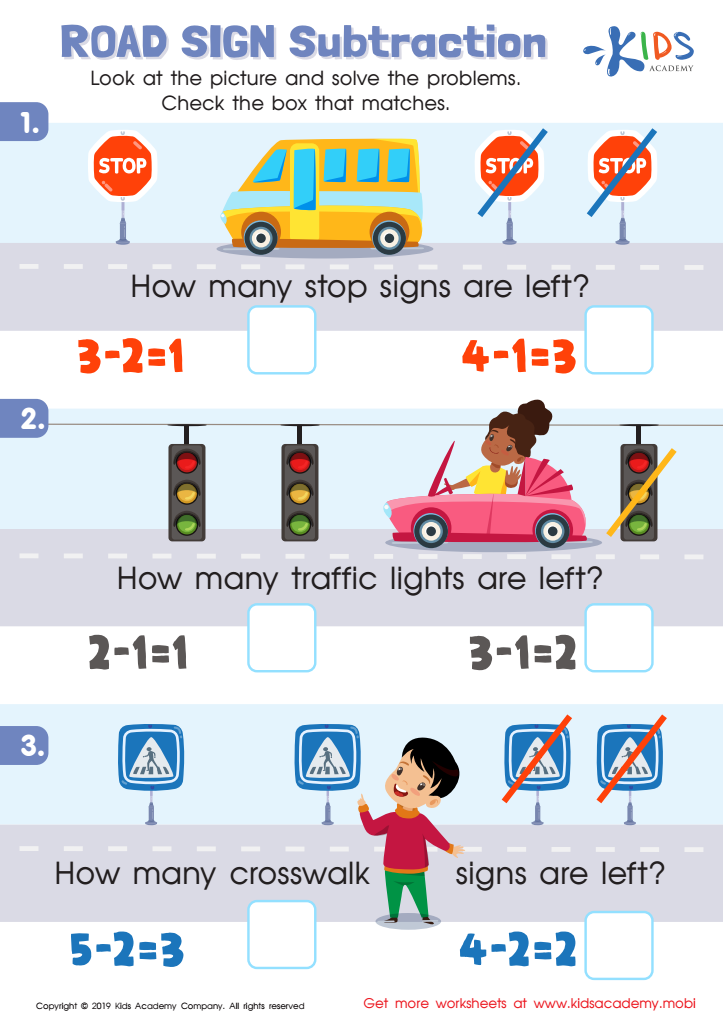

Road Sign Subtraction Worksheet
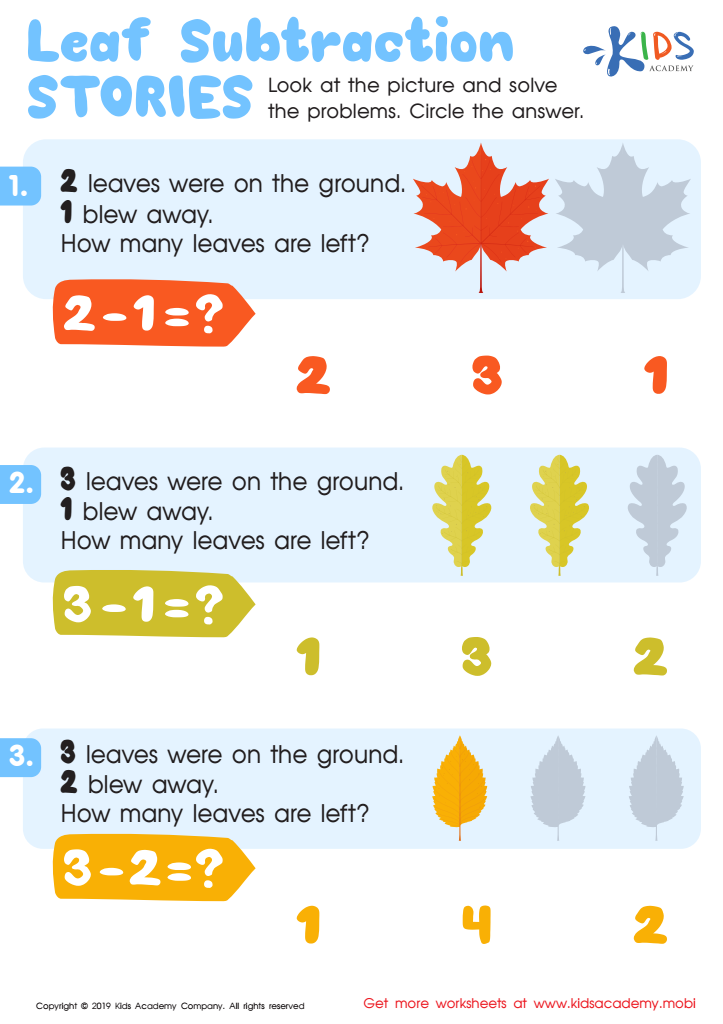

Leaf Subtraction Stories Worksheet
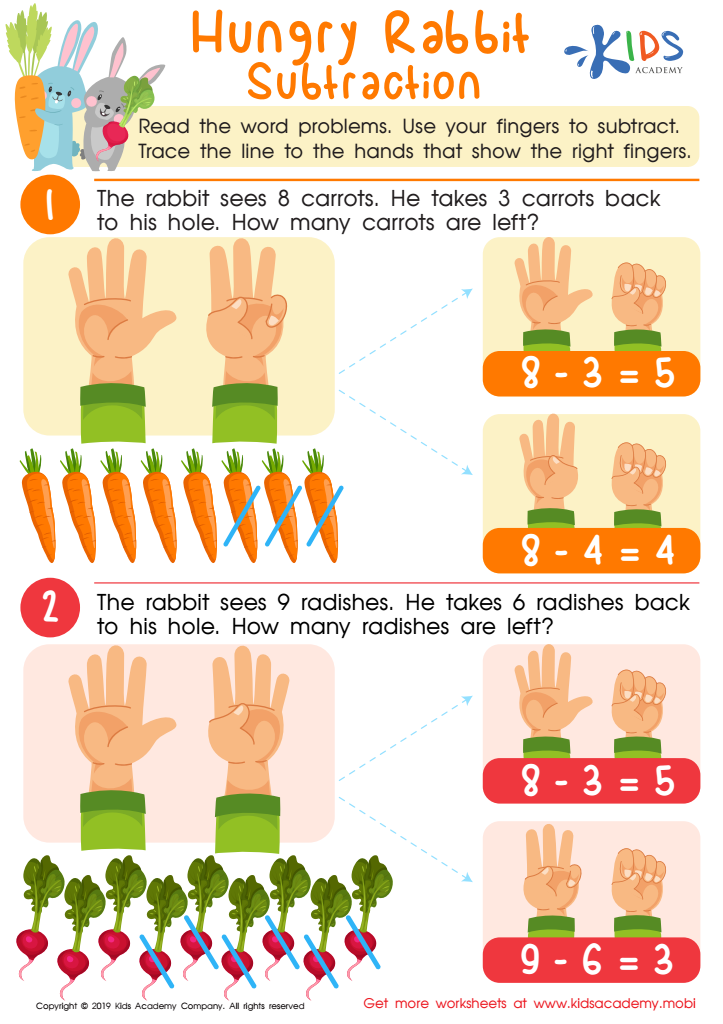

Hungry Rabbit Subtraction Worksheet
Easy subtraction is a foundational skill for children ages 4-7, making it crucial for both parents and teachers to pay attention to this topic. At this stage, children start developing mathematical understanding, and grasping subtraction sets the groundwork for more complex concepts in the future. Mastery of easy subtraction promotes logical thinking, problem-solving abilities, and spatial awareness—all essential skills in daily life and future learning.
Moreover, early exposure to subtraction helps boost children’s confidence as they successfully solve problems, fostering a positive attitude towards mathematics. Engaging children in playful activities, games, and real-life subtraction scenarios makes learning enjoyable and relevant. Not only does this enhance their skills, but it also encourages critical thinking.
Additionally, as children develop social skills, they can use subtraction in collaborative settings—like sharing objects—which teaches them about fairness and teamwork. This foundational knowledge also helps parents and teachers create appropriate interventions if challenges arise, cultivating a supportive learning environment.
In summary, focusing on easy subtraction during these formative years nurtures cognitive, emotional, and social development, making it an essential area of concern for both parents and educators committed to holistic growth in early childhood education.
 Assign to My Students
Assign to My Students













